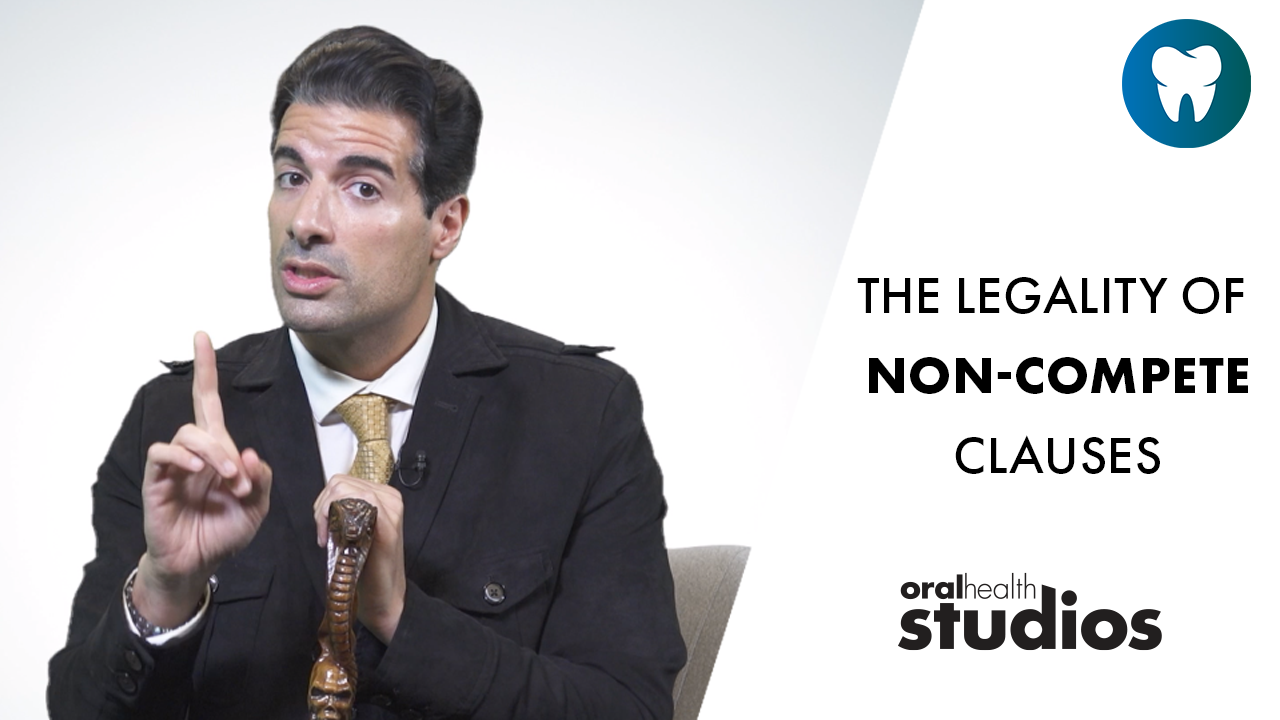Dentists in Canada are self-regulated health care professionals. As such, they are accountable to the public and to the profession through membership in their professional college. In Ontario, this is the Royal College of Dental Surgeons of Ontario (the “College”), but each Province has a dental regulatory body that fulfils the same functions, including the investigation of complaints. This article will review the complaints investigation process in Ontario, and will offer some tips for dentists across Canada on dealing with complaints in a defensive manner.
THE COST OF PRACTICING A REGULATED PROFESSION
If you are a dentist engaged in private practice, then you are acutely aware that you are not only a professional, but a businessperson. As such, you face the same prospect of difficult interactions or disagreements with patients (customers) over fees or work undertaken as any other business person.
Where you and your health professional colleagues differ from most other individuals and business people, is that, in addition to being sued, you can face regulatory proceedings which could result in the suspension or revocation of your certificate of registration (license to practice). And unlike a legal action, in which the party bringing the action must usually pay to investigate and prosecute the action and risks having to pay costs if he or she is unsuccessful, it costs nothing for a person to submit a complaint to the College.
Typically, a patient complaint will result in a panel of the College’s Inquiries, Complaints and Reports Committee (ICRC) investigating the allegations and deciding what, if any, action to take. While this is never a pleasant experience for the dentist, in many cases, careful and effective management of the complaint from the outset can avoid the ICRC panel taking action which could impact on your certificate of registration. Accordingly, for dentists, responding properly to complaints is a “cost of doing business”.
THE COMPLAINTS PROCESS IN A NUTSHELL
Every complaint submitted in writing or in a recorded form (i.e. in an email message or other format) must be investigated by the ICRC is an investigation committee of the College, which is tasked with investigating both formal complaints and informal concerns about members’ conduct, competence or capacity.
Typically, the College will advise you of the complaint but will first clarify the substance of the complaint with the complainant before asking you to respond.
Where appropriate, the complaint may be disposed of by way of alternate dispute resolution, in which case, an independent facilitator will work with the dentist and the complainant in an effort to resolve the complaint. In rare circumstances, the complaint may be disposed of summarily, on the basis that the ICRC Panel considers the complaint to be frivolous, vexatious, made in bad faith or an abuse of process. Usually, however, you will be asked to respond to the complaint in writing, and will have thirty (30) days within which to do so.
Your response will be provided to the complainant, and the complainant will have the opportunity to respond, following which you may have a further opportunity to respond. The ICRC may then direct further investigation of the complaint, or may dispose of it by taking no action, or by taking some action, as follows:
Should the ICRC find that you may have engaged in an act of professional misconduct or that you are incompetent, the ICRC panel will refer specified allegations of misconduct or incompetence to the College’s Discipline Committee. This is the most serous possible outcome from a complaint, as it could result in the suspension or even revocation of your certificate of registration.
Other “less serious” action taken by the ICRC panel can include: acceptance of an undertaking to take educational courses, undergo monitoring or complete other steps; providing guidance or advice to improve your practice; or even requiring you to appear to be cautioned about your practice or conduct or cautioning the dentist in writing. Any of these measures can be concerning, and may be onerous, but will not ultimately result in the suspension or revocation your certificate of registration, provided you fulfil any undertaking given to the College and that the errors or transgressions which resulted in the complaint and action taken are not repeated.
If the ICRC takes any action other than referral of allegations of misconduct to the Discipline Committee, either you or the complainant can request a review of that disposition by the Health Professions Appeal and Review Board (HPARB). HPARB can confirm the ICRC’s decision, return the matter to the ICRC for further consideration, or substitute its decision for that of the ICRC. HPARB will only take such steps if it determines that the ICRC’s investigation was inadequate or that the ICRC’s decision was unreasonable.
STRATEGIC CONSIDERATIONS: PREVENTING MINOR COMPLAINTS FROM BECOMING MAJOR HEADACHES
While complainants frequently allege serious misconduct such as a breach of trust, a failure to maintain the standard of practice of the profession, or conduct that would reasonably be regarded by members as “disgraceful, dishonourable or unprofessional,” such complaints can often boil down to miscommunication, a misapprehension of the facts, or allegations that are simply unfounded. Despite the serious conduct alleged, many complaints, if answered appropriately, will result in the ICRC taking no action or some action short of a referral of allegations to the Discipline Committee. Indeed, the manner in which you respond to complaints can go a long way towards achieving that result; the response to a complaint can also exacerbate a situation and create a “major headache”. The following are some tips to help avoid that outcome.
1. Get Advice from the Outset
When you (or any professional) receive a complaint, it is an affront to your professionalism and integrity. It stings. And because of this, you may lack the objectivity necessary to respond appropriately. This is why you should get advice from a lawyer experienced in health law from the outset, before responding to any complaint. Even if you draft your own response and your lawyer’s role is limited to reviewing the response to ensure all issues have been addressed and to “sanitizing” the response or toning down your language, this can result in the final product becoming more clinical and less emotional and will therefore be more persuasive when reviewed by the ICRC.
2. Maintain Reliable and Helpful Records
Typically, you will be asked to provide your patient chart along with a response to a complaint. When there are records which relate to the care or treatment provided to a patient, the records will speak for themselves. Dentists have been told since dental school that good records can be their best friend when responding to an allegation. Unfortunately, the corollary of that is also true: poor records will make it difficult to respond to an allegation about consent, the care or treatment provided or regarding a patient’s symptoms or instructions given to the patient. If that is the case, your legal counsel will try to help you to deal with this shortcoming in your case, by:
• providing evidence as to your usual and customary practice;
• obtaining any available supportive evidence from staff or colleagues as to their observations or recollections; and
• referring to other documents or other professionals’ records to support your response.
Commit now to making your counsel’s job easier, by maintaining records about your patient care and treatment that are reliable and helpful, and that will allow another professional to understand what you did or did not do, and why.
Records relating to financial matters (in particular, fee estimates) can be vitally important when responding to a complaint about fees or about a perceived poor outcome.
3. Never, Ever, Ever Alter Patient Records
If you receive a complaint and you realize that your records are not supportive, are lacking, or are not as fulsome as you would otherwise like, the worst thing that you can do in these circumstances is to alter existing records or create new records. While there are some circumstances in which it would be appropriate prepare a “late entry” (dated at the time of entry), altering a record or creating a record after the fact without indicating when the record was created is an act of professional misconduct in and of itself which is likely to be dealt with more harshly than any breach of standards or honest mistake.
4. Distill the Complaint to its Essence
Complainants rarely have legal or dental backgrounds and not typically seek advice before preparing their complaint. Accordingly, complaints often consist of diatribes, accusations and facts taken out of context. With assistance of a lawyer who has expertise in this area, you can respond most effectively by distilling the complaint to its essence and responding to each aspect thereof. This involves:
• identifying the allegations of misconduct or incompetence that require a response;
• providing a summary of the case in chronological order to provide context for the response; and
• responding to each allegation fully and completely.
5. Be Sure to Have the Whole Story
Recent cases have called into question the practice, used by some regulators’ “complaints” committees, of obtaining and relying on informal expert “advice”. You should ensure that you have the opportunity to respond to any such evidence, if it is to be relied upon by the ICRC Panel.
6. Show the ICRC Panel the Way
Recall that the ICRC must dispose of the patient’s complaint in a “reasonable” manner. To do otherwise, the ICRC risks having its decision overturned on review by HPARB. Also, members of the ICRC Panel reviewing the complaint will want to be just in their disposition of the complaint. Accordingly, the ICRC Panel requires enough information to enable it to fairly dispose of the patient’s complaint. Your response does not have to be lengthy, but it should provide the ICRC with enough information and context so that sense can be made of both the complaint and the response. For example, if the patient failed to follow your advice in the past, or complained about the fee, these facts may provide context for the complaint and response, but must be communicated respectfully and appropriately. The goal is to show the ICRC Panel that in all of the circumstances, it is reasonable and appropriate for the Panel to take no or minimal action in respect of the complaint.
7. It Ain’t Over Until It’s Over
Even after the ICRC disposes of the complaint by taking no further action or providing advice or a caution, the matter may still continue, since either party may request that the HPARB review the decision of the ICRC. Since the HPARB’s review is based on the documents submitted to the ICRC Panel, it is important that you put before the ICRC Panel all of the information that you wish to rely on at the HPARB Review.
8. Consider a Proposal
On some occasions, the complaint will give rise to legitimate concerns. These may relate to your record-keeping practices, your billing practices, or a concern that your management of the case falls below the standard of practice of the profession or that the case was beyond your abilities. In these circumstances, it is often valuable to self-identify the shortcomings and to propose a plan of remediation that could address them (for instance, further education, mentorship, a term of monitoring etc.). Such terms could be included in an undertaking that you may give to the College as a way of avoiding further action. Remedial steps must be proposed carefully, with the assistance of a lawyer and on a “without prejudice” basis to ensure that you are still able to defend your conduct if you and the College cannot agree on the form or contents of the remediation proposed. While not always successful, proposals which address the concerns in a voluntary manner often provide the ICRC panel with an alternative to referral of allegations of misconduct to the Discipline Committee of the College.
CONCLUSION
It is always upsetting to receive a complaint. However, with the early assistance of a lawyer experienced in health care law, and a careful, complete and honest assessment of the complaint, you can craft a response to the complaint which will address all allegations and show the ICRC Panel a path to the correct decision. In this way, you can ensure that a relatively minor complaint does not become a very serious problem.OH
About the Authors
Lonny J. Rosen, C.S
Certified by the Law Society of Upper Canada as a Specialist in Health Law. Practicing as a Professional Corporation.
Office 416.223.4222.
rosen@rosensunshine.com
www.rosensunshine.com
Elyse Sunshine
Practicing as a Professional Corporation.
Office 416.223.4222
sunshine@rosensunshine.com
www.rosensunshine.com
Oral Health welcomes this original article.












